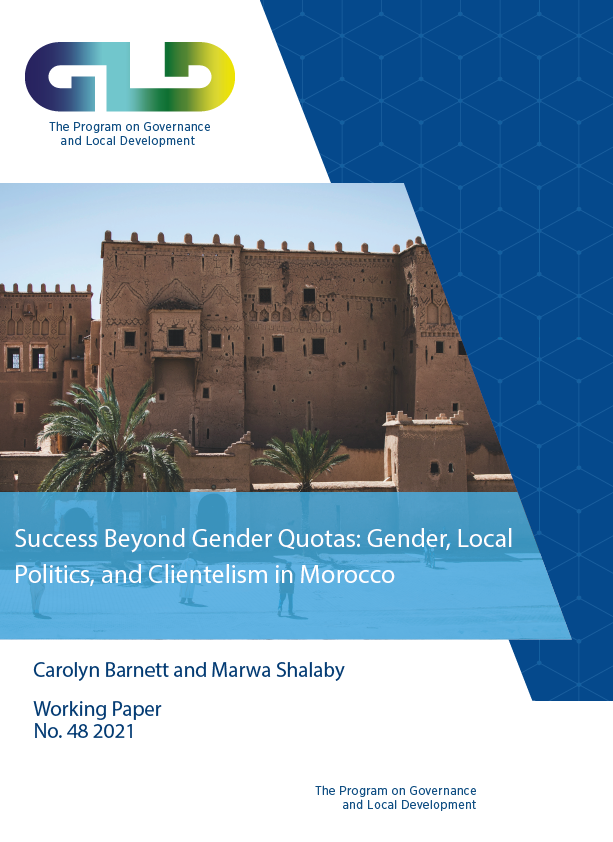No.48 Success Beyond Gender Quotas: Gender, Local Politics, and Clientelism in Morocco
Carolyn Barnett and Marwa Shalaby
Abstract
What explains the success of female candidates in local elections? Despite the proliferation of subnational gender quotas over the past two decades, we continue to know little about the determinants of women’s successes in local politics, especially in non-democratic settings. In this working paper, we focus on the case of Morocco and argue that the prevalence of clientelism and patronage networks at the local level hampers women’s abilities to win competitive seats. While these patterns dominate both local and national politics in Morocco and much of the MENA region, they are most pronounced at the local level with direct implications for female representation. We argue that women’s success in local politics is curtailed by their ‘newcomer’ status and weak party affiliation, combined with the majoritarian electoral system (SMD) in place in most municipalities that tends to favor more connected, male candidates who are predominantly viewed by voters as capable service providers. To test our argument, we rely on an original dataset combining the electoral outcomes of all 1538 of Morocco’s municipalities in the 2015 election, including municipal and councilor-level data. Quantitative data is supplemented with interviews conducted with local party officials and elected councilors.
